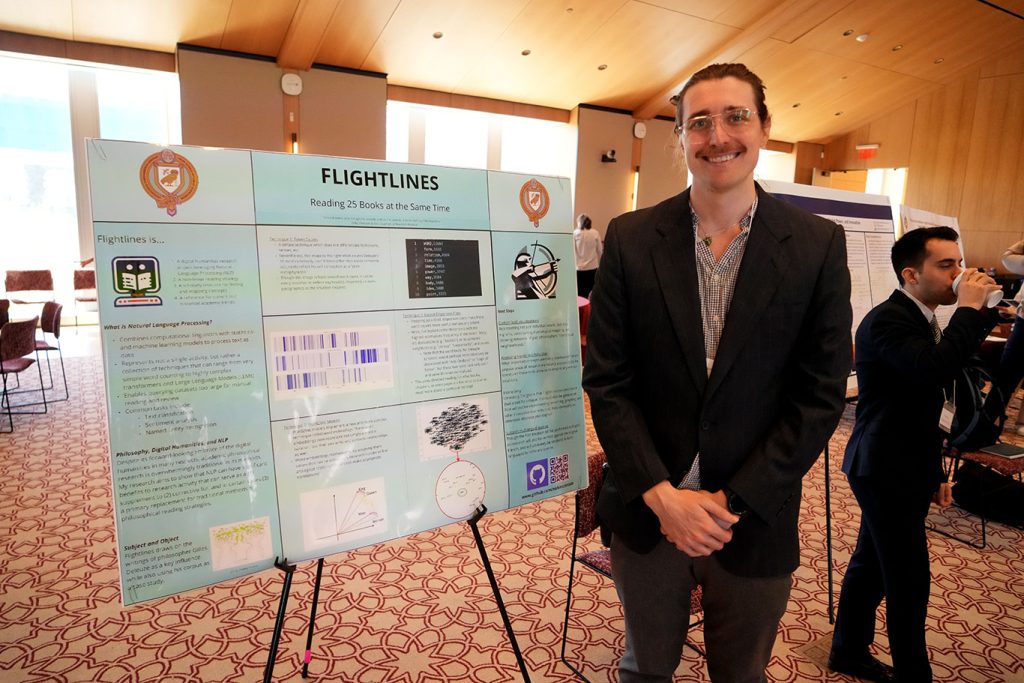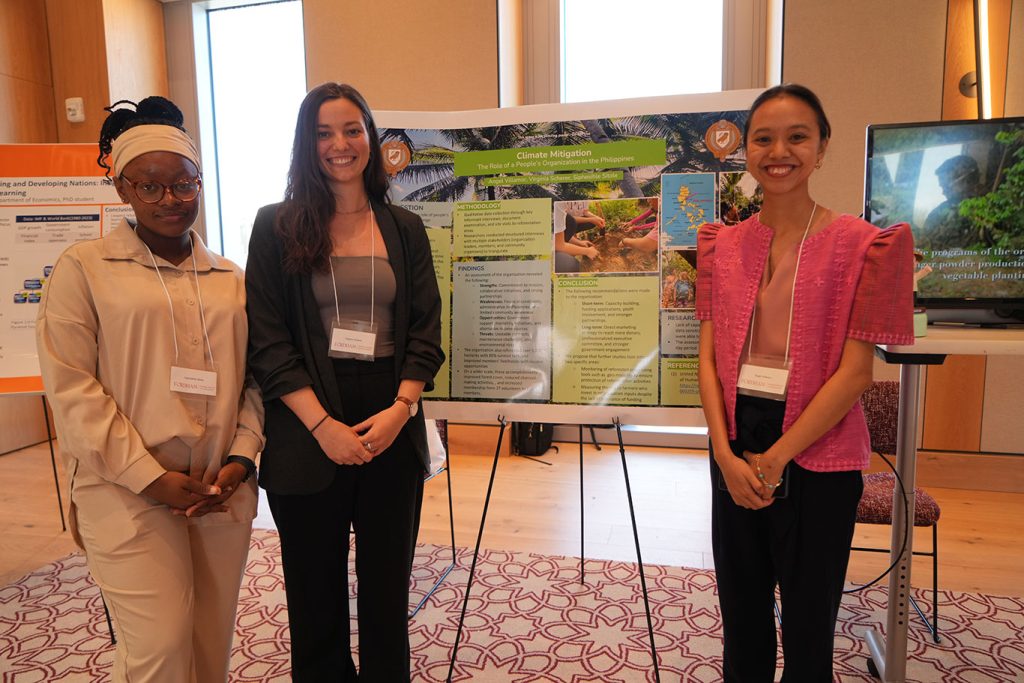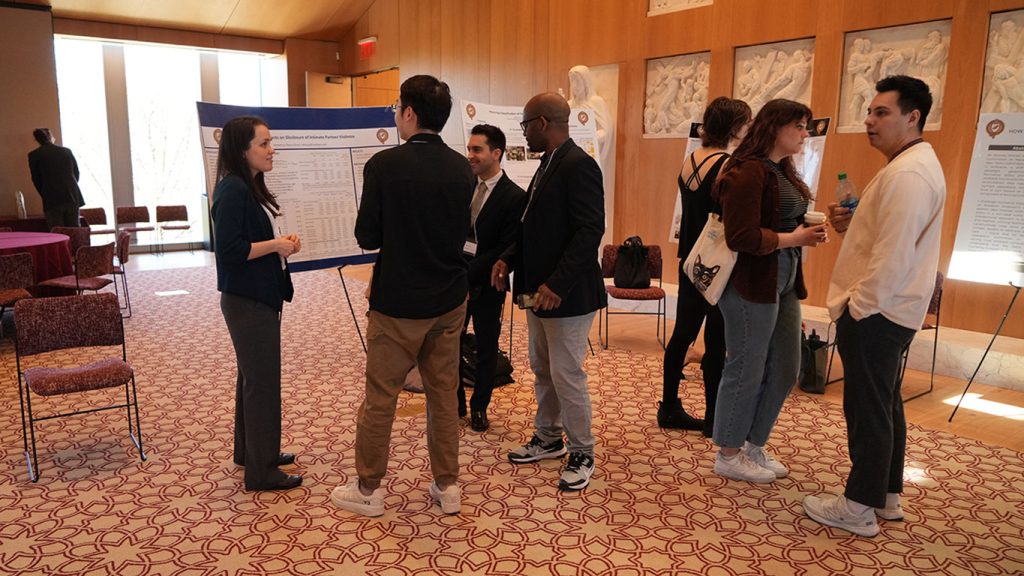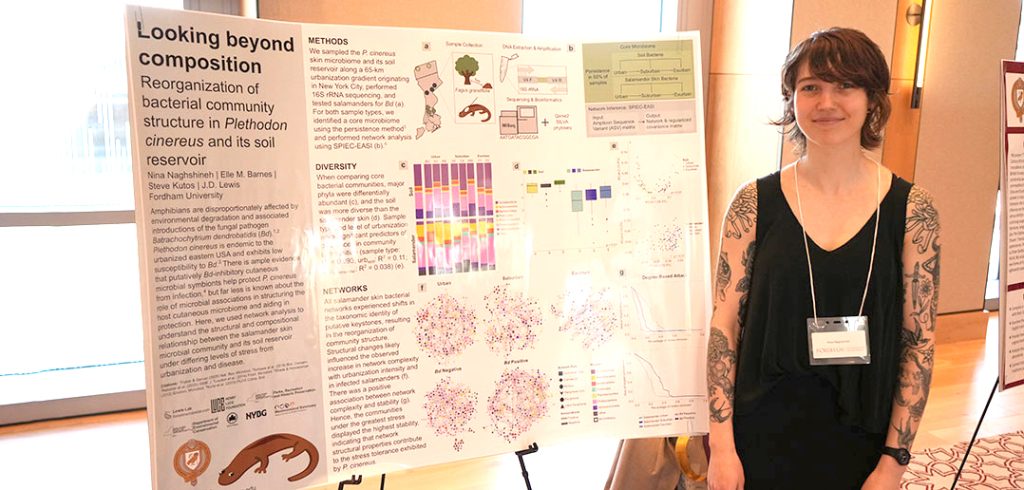In the first gathering of its kind, students from the Graduate School of Arts and Sciences (GSAS) gathered at the McShane Campus Center on the Rose Hill campus on April 16 to celebrate the research that is a critical part of their master’s and doctoral studies.
“It’s really gratifying to see how many of the projects lean into our identity as a Jesuit institution,” said Ann Gaylin, dean of GSAS, “and strive to advance knowledge in the service of the greater good.”
Students displayed posters on topics that ranged from biology to theology to economics to psychology.
Nina Naghshineh, Ph.D. in Biological Sciences
Topic: The Role of Bacteria in Protecting Salamanders
How would you describe your research?
I study the salamander skin microbiome and how features of bacterial communities provide protection against a fungal pathogen that is decimating amphibian populations globally.
Why does this interest you?
I’m really interested in how microbes interact and function. My study system is this adorable amphibian, but the whole topic is so interesting because microbial communities are so complex and really hard to study. So the field provides many avenues for exploration. These types of associations are present in our guts and on our skin. I’m interested in going into human microbiome work after I graduate, so I have a lot of options available to me because of this research.

Nicholas McIntosh, Ph.D. in Philosophy
Topic: Using AI to Help Scholars Distill Information from a Vast Body of Texts
How would you describe your project?
It’s a digital humanities project that uses natural language processing to help read and understand many texts at once. There’s this vision we have of a really great humanities scholar who is able to know a text so well that they could almost quote it from memory. That is really difficult for us to do right now in the same way we might have when there were only a couple of touchstone classical texts.
What do you hope this will accomplish?
Scholars are scanning texts either for our classes or for our own research. So this would help us figure out, number one, how can you look at a text and be able to recognize— is this text useful for me? Number two, what are the most important concepts that we should be tracking in a text? And number three, what is the text as data telling us that maybe scholarship is overlooking or overemphasizing given traditional readings?
I would also like to show that those of us who do philosophy don’t have to be afraid of these technologies.

Angel Villamar, Siphesihle Sitole, and Virginia Scherer, M.A. in International Political and Economic Development (IPED)
Project name: Climate Mitigation: The Role of a People’s Organization in the Philippines
What were you investigating with this research?
We looked at the role of the grassroots organization Tulungan sa Kabuhayan ng Calawis in dealing with climate mitigation. It was formed after Typhoon Ketsana hit in 2009. There is an area right outside of Manila that, over the years, has been deforested, so this organization organized to help incentivize reforestation. The farmers in the area, who are mostly women, develop the seedlings, do the land preparation, and plant the trees.
What do you hope people learn from this project?
We want to think about reforestation not as a one-time thing but as a long-term sustainable way. What incentives do you need so that you can keep doing this? We are showing that you can involve ordinary individuals at the grassroots level in something that is much bigger than them.


